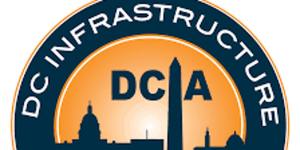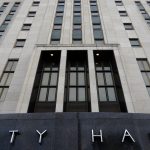
By Sharece Crawford
Special to the AFRO
Federal funding and budgets directly affect small businesses and local programs, and people are feeling the sting.
In the Fiscal Year (FY)- 2022 Budget Resolution Agreement Framework, President Joe Biden outlined a plan of $3.5 trillion in the Budget Reconciliation with instructions to enact the Build Back Better agenda. The agreement calls for the $3.5 trillion in long-term investments to be fully offset by a combination of new tax revenues, health care savings, and long-term economic growth. In addition, the agreement would prohibit new taxes on families making less than $400,000 per year, and on small businesses and family farms.
Many are wondering just how this translates to their increased income. The Agriculture Committee received an instruction of $135 billion to include debt relief. The Banking Committee received an instruction of $332 billion for Community investments, development and revitalization through initiatives like Community Land Trusts, investments in zoning, land use, transit improvements and creating healthy and sustainable housing. The Commerce Committee received an instruction of $83 billion for many Investments including technology, transportation, research, manufacturing, and economic development. The Energy Committee received an instruction of $198 billion, which includes consumer rebates to weatherize and electrify homes. The Environment and Public Works Committee receives an instruction of $67 billion, which includes the Clean Energy Technology Accelerator that would fund low-income solar and other climate-friendly technologies. It also includes Environmental justice investments in clean water affordability and access, healthy ports and climate equity.
The Small Business Committee receives an instruction of $25 billion for small business access to credit, investment and markets. The Finance Committee will receive an instruction that requires at least $1 billion in deficit reduction. This will provide the Committee with flexibility to make investment, revenue and offset decisions consistent with the policy recommendations.
So how do these numbers directly affect Washingtonians?
Places like the D.C. Infrastructure Academy (DCIA) are awaiting funds to support their programming. Infrastructure is one of the fastest growing industries in the country. Mayor Muriel Bowser launched the D.C. Infrastructure Academy at the Department of Employment Services, to meet the needs of skilled infrastructure professionals in Washington, D.C. DCIA coordinates, trains, screens and recruits District residents to fulfill the needs of the infrastructure industry and infrastructure jobs with leading companies in this high-demand field.”
One program that had been powered through DCIA was the H.O.P.E. Project. The H.O.P.E. Project Founder Raymond Bell has trained, coached and mentored over 1,700 people in the last nine years.
“The H.O.P.E. Project is an information technology (IT) training program dedicated to providing technical training and development for young adults. Our IT training program is designed to prepare students for entry-level positions as Helpdesk and Application Support Professionals.”
Bell’s leadership in IT has left him as one of the most sought after programs and one the largest connectors to employers for young people and adults without a college degree. Yet, funds are slow to trickle down to his firm through the D.C. Infrastructure Academy.
“I felt defeated after we didn’t win the DCIA grant the other day,” said Bell. He was referencing a shared testimony via a text message from a current employee of the Pentagon.
“Hey Mr. Bell, I just wanted to let you know that it’s been three months since I’ve started my job at the Pentagon and today I was fully granted my clearance. This opportunity was a blessing. I’m so thankful for the H.O.P.E project. When you say you’re going to put everybody on. You mean that with your whole heart. Thank you so much. This right here is a life changer.”
Bell explained that with funding from the City Government they would be able to help put more people back to work through programs and career development.
When the news got out that the H.O.P.E. Project didn’t get selected as a vendor to partner with D.C.’s Department of Employment Services (DOES), many residents spoke out in support.
“D.C. graduates should not suffer due to lack of support from the system. I think that is what landed most of them at the H.O.P.E project in the first place,” said Brittany Walker.
“No defeat. Patience is a part of success. Your breakthrough will be worth it. Keep applying. Your number will be called,” Cornel Dunmore commented.
“With Biden’s recent passage on Racial Equity, we are going to need programs like yours to ensure we get a slice of the pie,” wrote Dora Best, a supporter of the H.O.P.E Project.
Despite challenges with obtaining access to adequate funding while waiting on funding release from the FY-2022 budget the H.O.P.E project still has slots available to get your commercial drivers license (CDL).
The University of District of Columbia Community College is now offering free classes and certifications.
“The mission of the UDC- CC Division of Workforce Development and Lifelong Learning (WDLL) is to reduce unemployment and underemployment in the District of Columbia by enhancing the skills of its residents. The program provides training to D.C. residents aimed at helping them earn jobs, get promoted and train for careers in new industries,” according to the program description.
Help us Continue to tell OUR Story and join the AFRO family as a member – subscribers are now members! Join here!
The post Businesses eagerly await funding from FY-22 to create new job, training opportunities appeared first on AFRO American Newspapers .










